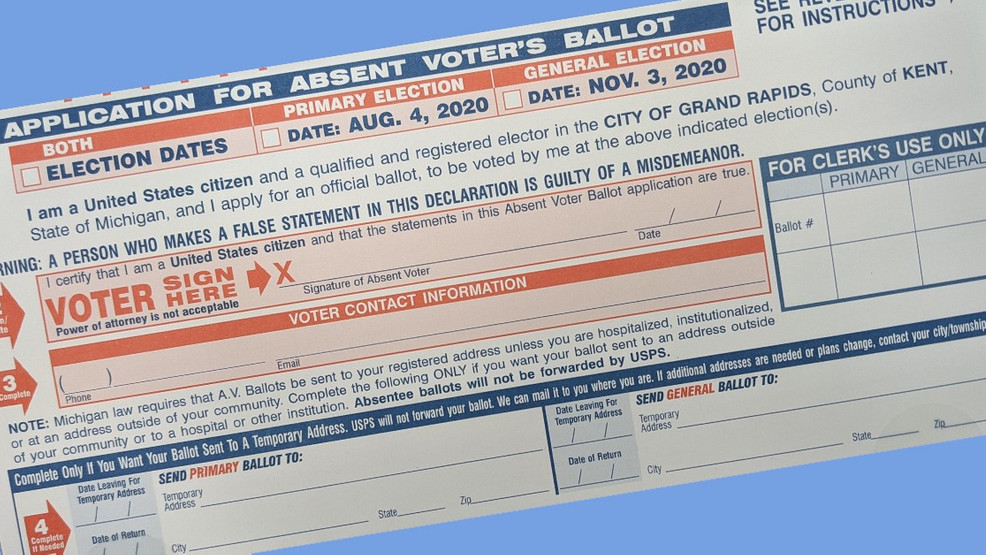A Michigan judge ruled last week Secretary of State Jocelyn Benson (D) broke state law when she unilaterally issued rules related to absentee balloting, legitimizing a key claim made by the Trump campaign in its legal challenges to the 2020 election.
Benson issued several unilateral orders during the 2020 election including sending absentee ballot applications to all registered voters. She also issued “guidance” on how to evaluate absentee ballots, a move Michigan Court of Claims Chief Judge Christopher Murray held violated the state’s Administrative Procedures Act.
In the guidance, Benson said “slight similarities” in signatures on absentee ballots should lead a counter to decide “in favor of finding that the voter’s signature was valid.”
Murray ruled Benson violated the law “because the guidance issued by the Secretary of State on October 6, 2020, with respect to signature matching standards was issued in violation of the Administrative Procedures Act (APA).”
“I’m glad the court sees Secretary of State Benson’s attempts at lawmaking for what they are — clear violations of her authority,” Michigan state Rep. Matt Hall (R) said in a statement.
“If she wants to make changes like these, she needs to work with the Legislature or properly promulgate them through the laws we have on the books — in this case the Administrative Procedures Act,” he continued.
Murray’s ruling came after Allegan County Clerk Bob Genetski sued Benson and state Director of Elections Jonathan Brater over Benson’s order which Hall described as a “mandatory directive requiring local election officials to apply a presumption of validity to all signatures on absent voter ballots.”
According to the suit, Genetski argued “the presumption contained in the guidance issued by defendant Benson will allow invalid votes to be counted,” but Genetski did not allege “that this guidance caused him to accept a signature that he believed was invalid.”
The court’s opinion concluded:
…nowhere in this state’s election law has the Legislature indicated that signatures are to be presumed valid, nor did the Legislature require that signatures are to be accepted so long as there are any redeeming qualities in the application or return envelope as compared with the signature on file. Policy determinations like the one at issue — which places the thumb on the scale in favor of a signature’s validity — should be made pursuant to properly promulgated rules under the APA or by the Legislature.
Like other progressive secretaries of state, Benson put an aggressive emphasis on voting by absentee ballot in the name of safety amid the Chinese coronavirus pandemic.
Over 3.1 million Michigan voters cast an absentee ballot out of a possible 7.7 million voters, WWMT News reported.
In May 2020, Benson used $4.5 million in funds from the CARES Act — the original coronavirus stimulus — to send absentee ballot applications to all voters, according to Breitbart News.
“By mailing applications, we have ensured that no Michigander has to choose between their health and their right to vote,” Benson said according to NBC 25.
“Voting by mail is easy, convenient, safe, and secure, and every voter in Michigan has the right to do it,” she continued.
Hall noted, “The Legislature is an equal branch of government charged with crafting laws. This is not the role of the Secretary of State, and there is a clear process that must be respected.”
Signature validation rules created without the approval of a legislature was one of the issues the Trump campaign and Republicans claimed was done illegally in the 2020 election.
Trump’s campaign and Republicans argued in cases nationwide that Article II of the Constitution requires state legislatures to make the rules governing presidential elections, and state election officials and courts lack the authority to change those rules.
Murray’s ruling undercuts the Democrat narrative that Republican legal challenges to 2020 election procedures were without merit and had therefore all been rejected by the courts. The original suit was filed October 6, 2020 — prior to the presidential election — but was not decided until March 9, 2021.
The case is Genetski v. Benson, No. 20-216-MM in the Court of Claims for the State of Michigan.
Story cited here.
























